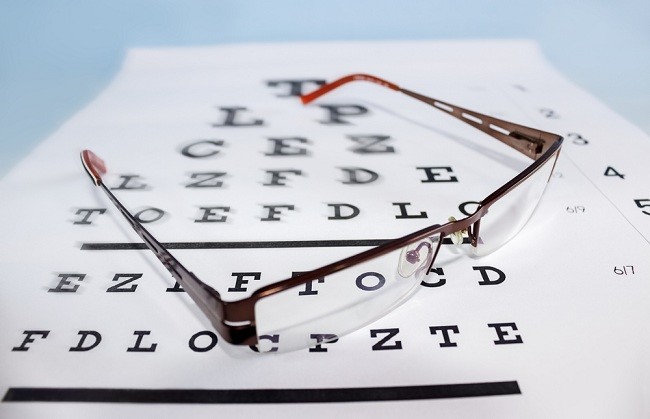Risedronate or risedronic acid is a drug to prevent and treat osteoporosis postmenopausal. It is also used in the treatment of osteoporosis due to long-term corticosteroid use and Paget's disease.
Risedronate belongs to the bisphosphonate group which works by means of the bone resorption process so as to prevent the loss of bone mass. That way, bone strength and density are maintained and the risk of fracture will be reduced.

risedronate trademark:Actonel Once a-Week, Actonel Once a-Month, Osteonate Oaw, Ristonat
What is Risedronate
| group | Prescription drugs |
| Category | Bisphosphonates |
| Benefit | Prevent and treat postmenopausal osteoporosis, treat osteoporosis due to long-term use of corticosteroid drugs, and Paget's disease |
| Consumed by | Mature |
| Risedronate for pregnant and lactating women | Category C:Animal studies have shown adverse effects on the fetus, but there are no controlled studies in pregnant women. Drugs should only be used if the expected benefit outweighs the risk to the fetus. It is not known whether Risedronate is absorbed into breast milk or not. If you are breastfeeding, do not use this medicine without telling your doctor. |
| Drug form | Tablet |
Warning Before Taking Risedronate
Risedronate should not be taken carelessly and must be according to a doctor's prescription. Here are some things you should pay attention to before taking risedronate:
- Tell your doctor about any allergies you have. Risenndronate should not be taken by someone who is allergic to this drug.
- Tell your doctor if you have difficulty swallowing, cannot sit or stand for long periods of time, or are having chemotherapy or radiotherapy.
- Tell your doctor if you have or have had achalasia, low calcium levels, stomach ulcers, kidney disease, dental or oral disease, impaired absorption (malabsorption), cancer, or blood disorders.
- Tell your doctor if you are pregnant, breastfeeding, or planning a pregnancy.
- Tell your doctor if you are taking any other medicines, including supplements, or herbal products.
- Tell your doctor that you are being treated with risedronate and have not had surgery or medical procedures, including dental surgery.
- See your doctor right away if you experience an allergic drug reaction, serious side effect, or overdose, after taking risedronate.
Dosage and Rules for Use Risedronate
The dose of risedronate is determined based on the age, condition of the patient, and the body's response to the drug. The following are the dosages of risedronate for adults based on their intended use:
- Purpose: Prevent and treat postmenopausal osteoporosis
The dose is 5 mg, once a day or 35 mg, once a week, or 150 mg, once a month.
- Purpose: Treating osteoporosis due to long-term use of corticosteroid drugs
The dosage is 5 mg per day
- Purpose: Treating Paget's disease
The dose is 30 mg, once daily, for 2 months.
- Purpose: Increase bone mass in men with osteoporosis
The dose is 35 mg, once a week.
How to Consume Risedronate Correctly
Follow the doctor's recommendations and always read the instructions for use listed on the risedronate packaging. Do not increase or decrease the dose, and do not use the drug for more than the recommended time.
Risedronate tablets are taken in the morning on an empty stomach or at least 30 minutes before breakfast. Swallow the risedronate tablets whole with the help of a glass of water. Do not chew, split, or crush the medicine.
To prevent irritation of the throat, take risedronate sitting or standing. Do not lie down and consume any food or drink for at least 30 minutes before taking the medicine.
During treatment with risedrone, you are also advised to always maintain dental hygiene and have regular dental check-ups with the doctor.
Make sure that there is sufficient time between one dose and the next. Try to take risedronate at the same time every day for maximum treatment.
If you forget to take risedronate, take it immediately if the break with the next consumption schedule is not too close. If it is close, ignore it and do not double the dose.
Perform control according to the schedule given by the doctor, so that the condition and response to therapy can be monitored. Do not smoke or consume alcoholic beverages as they can increase bone loss and exacerbate the condition.
Store risedronate in a dry, closed place, away from direct sunlight. Keep medicine out of reach of children.
Risedronate Interactions with Other Drugs
There are several drug interaction effects that can occur when risedronate is used with certain drugs, including:
- Decreased absorption of risedronate when used with antacids or mineral supplements containing calcium, aluminum, or magnesium
- Increased risk of peptic ulcers and gastrointestinal bleeding if used with deferasirox or nonsteroidal anti-inflammatory drugs, such as diclofenac or ibuprofen
- Increased risk of developing low levels of calcium in the blood (hypocalcemia) when used with etelcalcetide
Side Effects and Dangers of Risedronate
Some of the common side effects that can occur after taking risedronate are:
- Diarrhea
- Constipation
- Bloating or stomach pain
- Headache
- Muscle pain, joint pain, or bone pain
Check with your doctor if the side effects above don't go away or get worse. Immediately see a doctor if there is an allergic reaction to the drug which can be characterized by the appearance of symptoms in the form of an itchy rash, swelling of the eyes and lips, or difficulty breathing.
In addition, you should also see a doctor immediately if you experience more serious side effects, such as:
- Muscle pain, joint pain, hip pain, severe
- Pain or swelling in the jaw or teeth that fall out suddenly
- Ear pain, discharge from the ear, and infection of the ear bones
- Muscle cramps, muscle stiffness, or tingling
- Severe stomach pain, bloody or black stools, difficulty swallowing, or painful swallowing









